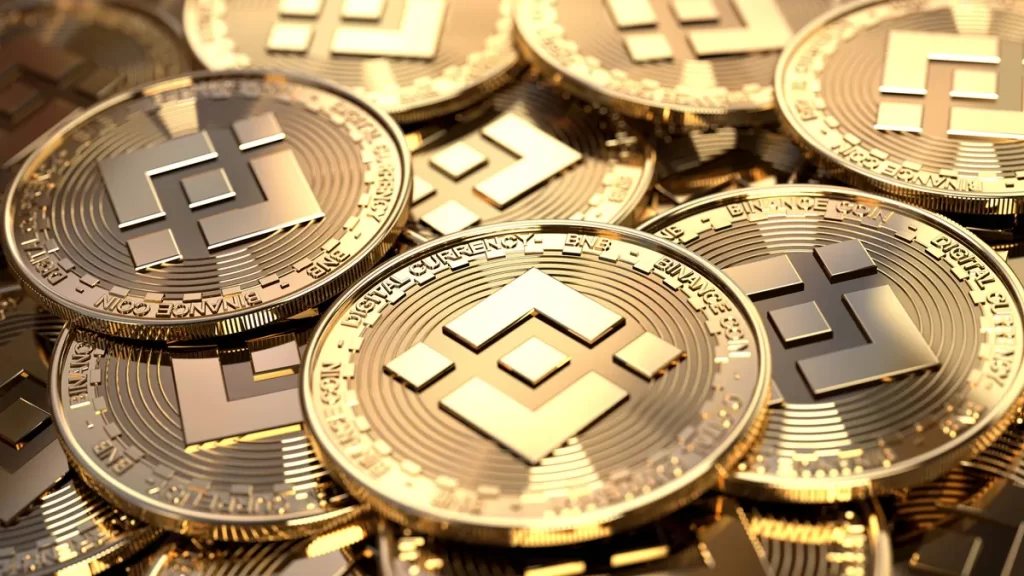Table of Contents
In the ever-evolving world of cryptocurrencies, Binance Coin (BNB) has emerged as a prominent and versatile cryptocurrency. As the native cryptocurrency of one of the world’s largest cryptocurrency exchanges, Binance, BNB plays a crucial role within the Binance ecosystem and has found applications far beyond exchange trading.
In this comprehensive guide, we will explore the world of BNB, providing you with all the essential information you need to know about Binance Coin.
What is BNB (Binance Coin)?
BNB, short for Binance Coin, is the native cryptocurrency of the Binance platform, one of the leading cryptocurrency exchanges globally. Binance was founded by Changpeng Zhao (CZ) in 2017, and BNB was introduced as part of an Initial Coin Offering (ICO) to raise funds for the exchange’s development. Since then, BNB has grown in prominence and utility, expanding beyond its original purpose as a utility token for reduced trading fees on the Binance exchange.
Key Features of BNB
1. Utility Token: BNB started as a utility token for the Binance exchange. Traders could use BNB to pay for trading fees, which offered discounts when using BNB as the payment method. This utility feature remains at the core of BNB’s functionality.
2. Binance Ecosystem: BNB has expanded its use within the broader Binance ecosystem, which includes various services such as Binance Smart Chain (BSC), Binance Launchpad for token sales, Binance NFT Marketplace, Binance Staking, and more. Users can utilize BNB for various purposes across these services.
3. Token Burn: Binance conducts regular “token burns,” wherein a portion of the circulating BNB supply is permanently removed from circulation. This practice is intended to reduce supply and potentially increase the value of remaining BNB tokens.
4. Cross-Chain Compatibility: BNB has been designed to be compatible with multiple blockchains, including Binance’s own Binance Chain and Binance Smart Chain. This cross-chain compatibility enables BNB to move seamlessly between different blockchain networks.
5. Wide Adoption: BNB is widely accepted on various cryptocurrency exchanges and is tradable against numerous other cryptocurrencies, making it a popular choice for traders and investors.
How Does BNB Work?

To understand how BNB works, it’s essential to explore its various use cases and roles within the Binance ecosystem:
1. Reduced Trading Fees: BNB can be used to pay for trading fees on the Binance exchange, offering users discounts when they opt for BNB as the payment method. This encourages traders to acquire and use BNB for their transactions, increasing its demand.
2. Binance Ecosystem Services: BNB is used for various purposes within the Binance ecosystem. For example, users can participate in token sales on the Binance Launchpad using BNB, stake BNB to earn rewards and purchase non-fungible tokens (NFTs) on the Binance NFT Marketplace.
3. Cross-Chain Transfers: BNB’s cross-chain compatibility allows users to move their BNB between different blockchain networks seamlessly. Binance Chain and Binance Smart Chain have gained popularity as efficient and cost-effective platforms for various decentralized applications (dApps).
4. Token Burn: Binance conducts periodic token burns, where a portion of the BNB supply is destroyed. These burns have the potential to increase the scarcity and value of BNB over time.
5. Investment: Some users hold BNB as an investment, speculating that its value will increase over time due to its utility within the Binance ecosystem and its wider adoption in the cryptocurrency market.
What Can You Do With BNB?
BNB offers a wide range of applications and use cases for cryptocurrency enthusiasts, traders, and investors:
1. Trading: BNB is actively traded on various cryptocurrency exchanges, making it a popular choice for trading pairs. Traders often use BNB for speculative trading or to reduce trading fees.
2. Reduced Trading Fees: BNB can be used to pay for trading fees on the Binance exchange, providing a discount compared to using other cryptocurrencies or fiat currencies for fee payment.
3. Binance Ecosystem: BNB can be used across various Binance services. Users can participate in token sales on the Binance Launchpad, stake BNB to earn rewards and purchase NFTs on the Binance NFT Marketplace.
4. Cross-Chain Transfers: BNB’s cross-chain compatibility allows users to transfer their assets between different blockchain networks, including Binance Chain and Binance Smart Chain, which offer their unique decentralized applications and services.
5. Investment: Some individuals acquire and hold BNB as an investment, hoping that its value will appreciate over time, considering its utility and wide acceptance.
6. NFTs: BNB can be used to purchase non-fungible tokens (NFTs) on the Binance NFT Marketplace, which hosts a variety of digital collectables, art, and virtual assets.
7. Staking: Binance offers staking opportunities for BNB holders, allowing them to earn rewards by locking up their BNB tokens for a specified period.
8. DeFi and DApps: BNB can be used within the broader decentralized finance (DeFi) ecosystem and decentralized applications (dApps) built on the Binance Smart Chain. Users can provide liquidity, borrow, lend, and engage in yield farming using BNB.
Selling and Cashing Out Binance Coin (BNB)
Selling BNB is easy, especially with a platform like Prestmit. Prestmit is a platform that allows users to sell BNB and other cryptocurrencies in an OTC fashion. Here’s a detailed explanation of selling crypto on Prestmit.
About Binance Smart Chain (BSC)
Binance Smart Chain (BSC) is a blockchain network developed by Binance, designed to provide a fast and cost-effective environment for decentralized applications and smart contracts. BSC operates in parallel with Binance Chain and is compatible with Ethereum, meaning that Ethereum-based dApps can easily migrate to BSC.
Key features of BSC include:
1. Fast Transactions: BSC offers quick transaction confirmation times, typically taking just a few seconds, making it suitable for various applications, including DeFi and gaming.
2. Low Fees: BSC’s transaction fees are significantly lower than those of the Ethereum network, making it an attractive option for users looking to reduce transaction costs.
3. Compatibility: BSC is compatible with Ethereum’s Ethereum Virtual Machine (EVM), allowing developers to deploy Ethereum-based dApps on BSC with minimal modifications.
4. Delegated Proof of Stake (DPoS): BSC uses a DPoS consensus mechanism, where a limited number of validators are elected to produce blocks and maintain the network’s security and functionality.
5. Interoperability: BSC’s cross-chain compatibility allows for seamless asset transfers between Binance Chain and BSC, providing flexibility for users.
The Role of BNB within the Binance Smart Chain:
BNB plays a pivotal role within the Binance Smart Chain ecosystem. It is used for various purposes, including:
1. Transaction Fees: BNB can be used to pay for transaction fees on the Binance Smart Chain, similar to its use on the Binance exchange. This encourages users to hold and utilize BNB for network transactions.
2. Staking: BNB holders can participate in staking on BSC to earn rewards, further incentivizing the acquisition and use of BNB.
3. Governance: BNB holders on BSC have the opportunity to participate in governance decisions and proposals related to the network’s development and operation.
4. Liquidity Provision: BNB can be used in various DeFi protocols and liquidity pools on BSC, enabling users to provide liquidity and earn rewards.
What Are Some BNB Frequently Asked Questions?
1. What is Binance Coin (BNB)?
Binance Coin (BNB) is a digital cryptocurrency that was initially created as a utility token for the Binance cryptocurrency exchange. It has since evolved to have various use cases, including trading, fee discounts, staking, governance, and participation in the Binance Smart Chain (BSC) ecosystem.
2. How can I acquire BNB?
You can acquire BNB through various means, including buying it on cryptocurrency exchanges, participating in Binance Launchpad token sales, earning it through staking or DeFi platforms, or receiving it as part of promotions and rewards on the Binance exchange.
3. What is the purpose of BNB on the Binance exchange?
On the Binance exchange, BNB serves multiple purposes, such as paying for trading fees, reducing trading fees when used as a payment method, participating in token sales on the Binance Launchpad, and more. It incentivizes traders and users to use BNB for various transactions within the exchange.
4. What is the token burn mechanism for BNB?
Binance periodically conducts token burns, where a portion of the circulating BNB supply is permanently removed from circulation. This practice is intended to increase the scarcity of BNB and potentially drive up its value over time. Binance typically conducts quarterly burns.
5. Can I stake BNB?
Yes, you can stake BNB on Binance Smart Chain and various DeFi platforms that support BNB staking. Staking allows you to lock up your BNB tokens for a specified period and earn rewards in return. Rewards may include additional BNB tokens or other tokens within the staking pool.
6. What is BNB used for in DeFi?
In the decentralized finance (DeFi) ecosystem, BNB can be used for providing liquidity to decentralized exchanges (DEXs), yield farming, participating in DeFi lending and borrowing platforms, and more. BNB’s utility extends to a variety of DeFi protocols on different blockchains, including Binance Smart Chain and Ethereum.
7. Is BNB a good investment?
Whether BNB is a good investment depends on your investment goals, risk tolerance, and market conditions. BNB has shown price appreciation over time, and its utility within the Binance ecosystem and DeFi space has contributed to its demand. However, like all cryptocurrencies, it is subject to market volatility, so it’s essential to conduct thorough research and consider your investment strategy carefully.
Conclusion
Binance Coin (BNB) has evolved from its initial role as a utility token for the Binance exchange into a versatile digital asset with a broad range of applications. Its integration within the Binance ecosystem, including Binance Smart Chain, has expanded its utility beyond trading and fee reduction.
As BNB continues to adapt and find new use cases, it remains a significant player in the cryptocurrency space. Whether you’re a trader, investor, or someone interested in decentralized applications and blockchain technology, BNB offers a diverse set of opportunities and use cases. However, as with any cryptocurrency, it’s crucial to stay informed about the latest developments and potential risks associated with its use.
You might want to read more about other cryptocurrencies:
- All you need to know about Bitcoin
- All you need to know about Litecoin
- All you need to know about Dogecoin
- All you need to know about USDT
- All you need to know about Ethereum
- All you need to know about TRON
Last updated on August 8, 2025

